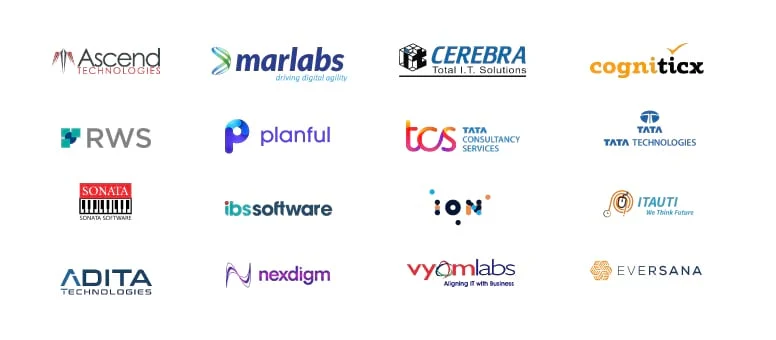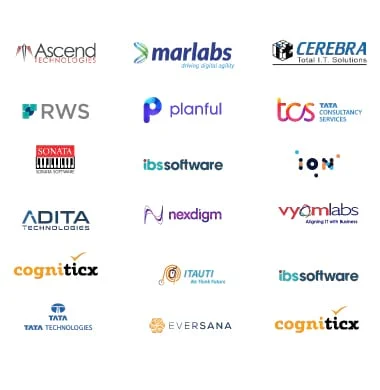30+ Hrs
Hands On Training
Lifetime Access
Updated Content
Customizable
Learning Paths
Industry Expert
Mentors
Projects
Advanced Interactive

Hands On Training
Updated Content
Learning Paths
Mentors
Advanced Interactive
DevOps is a set of strategies and tools meant to help a company produce applications and services more quickly than traditional software development procedures. Organizations can better service their clients and compete in the market because of this quickness.DevOps, in its most basic form, is about bridging the gap between traditionally compartmentalized teams, development, and operations. Development and operations teams collaborate across the whole software application life cycle, from development and testing to deployment and operations, in a DevOps paradigm.
HKR trainings a leading DevOps training in Kolkata, India, that helps in clearing the devops certification exams very easily. Controlling the version, automating the code, continuous integration (CI) and deployment, application monitoring, and configuration management are all covered in this course. You may learn everything there is to know about Nagios, Kubernetes, Puppet, Ansible, Docker, Jenkins, Git, and other DevOps tools.The course will consist of the goal, benefits, ideas, and workflow of DevOps. Real-life examples can be used to develop experience. Become a Devops expert by enrolling in our Devops certification training in Kolkata Today!
To apply for the Devops Training in Kolkata, you need to either:
.
Our Devops course curriculum is curated with the help of Devops experts to simplify the concepts of Devops. So we would cover every concept related to Devops and keep you updated. Following are the list of modules that would be covered in your Devops Training in Kolkata:
1.1 What is DevOps?
1.2 The 10,000 foot view
1.3 Why DevOps?
1.4 Dev-Test-Deploy
1.5 DevOps Principles
1.6 DevOps Toolchain
1.7 Overview of DevOps Tools
1.8 Co-relation between Agile and DevOps
1.9 Categories of DevOps Tools
2.1 Objective
2.2 What is SCM
2.3 Git branching and merging
2.4 Git Overview
2.5 Creating pull request
2.6 Code Review
2.7 Merging changes
2.8 Assisted Practice: Create a repo and push code on GitHub / Bitbucket
2.9 Advanced topic
3.1 Objective
3.2 Container Concept
3.3 Container Vs Virtual Machine
3.4 Installing docker on Centos, Debian and Windows
3.5 Managing Container with Docker Commands
3.6 Docker Compose
3.7 Docker registry - Docker Hub
3.8 Networking inside a single docker container
3.9 Networking across container and platform
3.10 Assisted Practice 1: Running a container Image with Docker
3.11 Assisted Practice 2: Building own docker image
4.1 Objective
4.2 Overview of Kubernetes, Docker Swarm and Consul
4.3 Kubernetes - Architecture and functional component
4.4 Installing Kubernetes on VM
4.5 Configure Pods and Containers
4.6 Kubernetes - Cluster Administrator Tasks
4.7 Kubernetes - App Developer Tasks
4.8 Running application on Kubernetes cluster
4.9 Scaling app in the cluster using the rolling update
4.10 Services, Load Balancing, and Networking
4.11 Security and Configuration
4.12 Running Automated Tasks with a CronJob
4.13 Stateful set to manage apps
4.14 Managing and using storage in pod and cluster level
4.15 Continuous deployment of an app from a git repository
4.16 Horizontal Pod Autoscaler
5.1 Objective
5.2 Configuration Management Tools in DevOps
5.3 Ansible fundamental
5.4 Ansible installation and version
5.5 Single command execution using ansible
5.6 Roles and ansible-galaxy
5.7 Playbook and jinja2 template
5.8 Debugging and Troubleshooting
6.1 Objective
6.2 Infra as a Code
6.3 Terraform Initialisation
6.4 Terraform provider, variable, resource group
6.5 Creating VM in AWS using terraform code
6.6 Creating and using Terraform Module
6.7 Version control of Terraform Code
7.1 Objective
7.2 Jenkins Installation
7.3 Run Jenkins Job
7.4 Jenkins Job to copy build on deployment VM
7.5 Jenkins job to deploy on Docker container
7.6 Jenkins job to deploy on Kubernetes
8.1 Objective
8.2 Introduction to Continuous Monitoring
8.3 Introduction to Graffana
8.4 Installing Graffana
8.5 Adding customised dashboard in Graffana
9.1 Objective
9.2 Introduction to AWS
9.3 Devops using AWS service
9.4 Kubernetes on AWS
9.5 Docker on AWS
9.6 Various AWS services - EC2, S3, VPC, Subnet, IAM
Description:In this project, we will create the CI/CD pipeline and integrate various devops tools like git, docker, selenium and p.....uppet. Read more
Description:In this project you will learn the importance of merging branches in the git by implementing a production usecase.You .....will also learn about the usage of git workflows, etc. Read more


Following are some of the objectives that you can achieve in your Devops training:
Our Data Marketing certification is intended for professionals with or without professional experience in one of the following profiles:
There are no particular prerequisites for attending this Devops course. Any person interested in building their career in Devops can take up this course.
You can enquire about the right platform that would give you complete knowledge. One such platform is HKR trainings. We provide you with excellent support for Devops training by illustrating real-time scenarios and use cases. And help you to build your career in the field of Devops.
When you complete this Devops course, HKR trainings will issue you the course completion certificate for Devops. This certificate will help you to get your desired job opportunity.
At HKR trainings, our Devops trainers are highly qualified and certified with numerous years of industrial experience and technological training.
We do not provide any job, but we give complete guidance throughout your course and assist you in clearing your interview. But your job will be based on your performance in your interview.
For Assistance Contact:
![]()
![]() +91 9711699759
+91 9711699759
Query